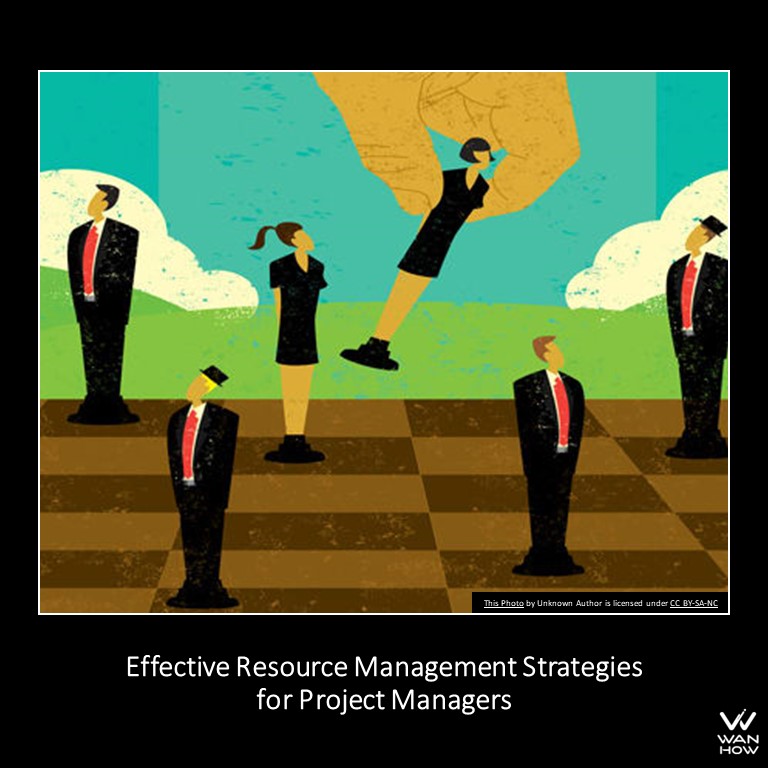
Resource management stands as one of the key areas in project management. It’s the art of allocating, tracking, and optimizing resources like time, money, and human capital to ensure project success. However, beneath the surface of this seemingly straightforward task lie a myriad of challenges that project managers grapple with daily. In this article, we’ll delve into some of the biggest hurdles project managers face in resource management and explore strategies to overcome them.
Resource Allocation
One of the initial challenges project managers encounter is resource allocation. With multiple tasks and activities vying for limited resources, it becomes a juggling act to distribute them efficiently. Often, project managers must contend with conflicting priorities and stakeholder demands, making it challenging to strike a balance. The risk of overloading certain resources while leaving others idle looms large, potentially derailing project timelines and budgets.
Strategy: Implementing robust prioritization frameworks can help project managers allocate resources based on strategic importance and urgency. Regular communication with stakeholders to understand their needs and expectations can also aid in making informed allocation decisions.
Capacity Planning
Forecasting resource availability and demand accurately is another hurdle in resource management. Project managers need to gauge the capacity of their team members and other resources over the project duration. However, unforeseen events such as sudden spikes in workload or unexpected resource constraints can throw off meticulously crafted plans, leading to bottlenecks and delays.
Strategy: Investing in resource management tools equipped with forecasting capabilities can enable project managers to predict resource requirements more accurately. Additionally, maintaining a buffer of flexible resources or cross-training team members can mitigate the impact of sudden capacity fluctuations.
Talent Management
Managing human resources poses its own set of challenges. Project managers must ensure they have the right mix of skills and expertise within their team to tackle project objectives effectively. However, talent shortages, skill gaps, and employee turnover can disrupt project continuity and jeopardize deliverables.
Strategy: Adopting a proactive approach to talent management is crucial. This involves conducting regular skills assessments, identifying training needs, and fostering a culture of continuous learning and development within the team. Leveraging external resources such as freelancers or outsourcing certain tasks can also provide a temporary solution to skill shortages.
Conflict Resolution
Resource management often brings project managers face to face with conflicts arising from competing resource demands or interpersonal dynamics within the team. Conflicts can escalate quickly if not addressed promptly, leading to decreased morale and productivity.
Strategy: Open and transparent communication is key to resolving conflicts effectively. Establishing clear channels for addressing grievances and encouraging a culture of respect and collaboration can help prevent conflicts from spiraling out of control. Project managers should also be prepared to mediate disputes impartially and find mutually beneficial resolutions.
Tracking and Monitoring
Keeping tabs on resource utilization and project progress in real-time is essential for course correction and decision-making. However, manual tracking processes can be time-consuming and error-prone, leading to inaccuracies in resource data.
Strategy: Embracing automated project management tools that offer comprehensive tracking and reporting capabilities can streamline resource monitoring. These tools provide visibility into resource allocation, utilization rates, and project milestones, empowering project managers to make data-driven decisions and preempt potential resource bottlenecks.
Conclusion
Resource management remains a cornerstone of successful project execution, yet it’s fraught with numerous challenges that project managers must navigate adeptly. By understanding these challenges and implementing proactive strategies to address them, project managers can optimize resource utilization, minimize risks, and steer their projects towards triumph in an ever-evolving landscape of constraints and opportunities.
